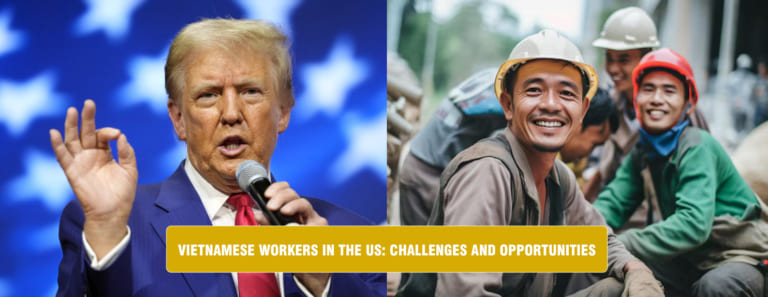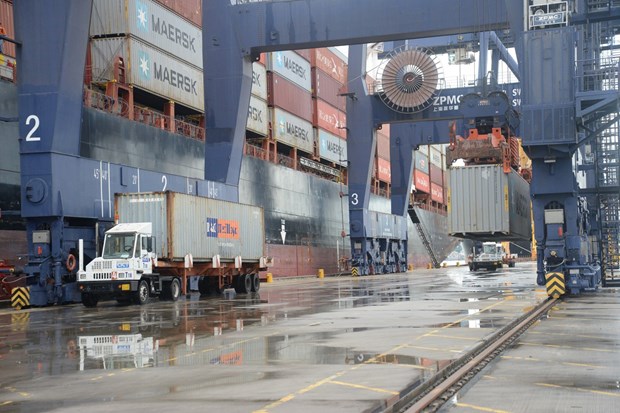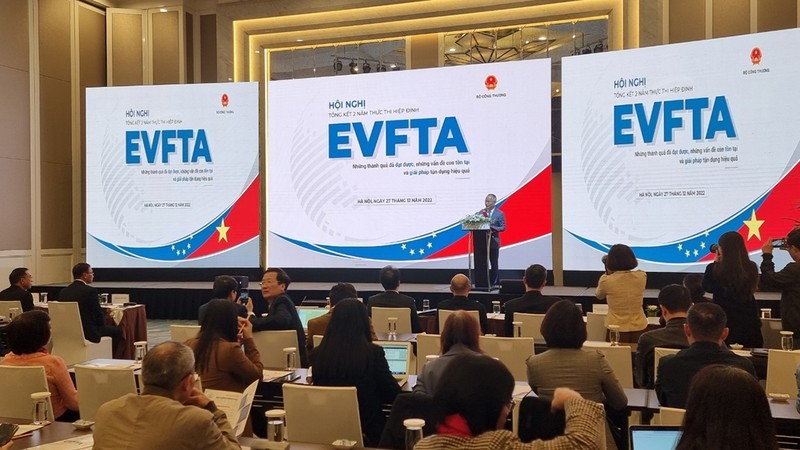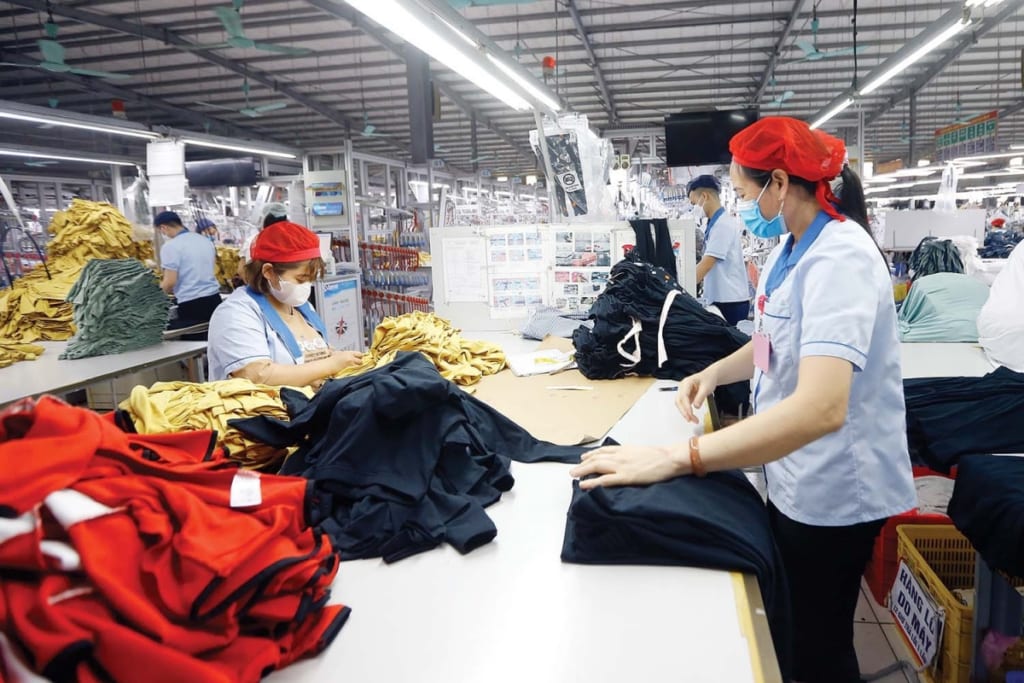Vietnamese workers have become an essential part of the US workforce, contributing to various industries, including healthcare, agriculture, and technology. As globalisation and international labour markets evolve, understanding the role of Vietnamese workers in the U.S. and the dynamics affecting their success is vital. This article offers an in-depth analysis of the opportunities and challenges for Vietnamese workers in the US while examining how shifting immigration policies and bilateral relations shape this critical labour market.
The Role of Vietnamese Workers in the US Labour Market
Vietnamese workers play a vital role in addressing labour shortages in the US. Their contributions are evident in sectors ranging from healthcare to agriculture and technology, where they bring hard work, resilience, and valuable skills. For Vietnam, exporting skilled and semi-skilled workers has boosted its economy through remittances and knowledge transfer. Agencies such as Manpower Vietnam have been instrumental in connecting Vietnamese workers with international opportunities and ensuring compliance with regulations.
Key Industries for Vietnamese Workers in the US.
Healthcare: A Sector of Critical Importance for Vietnamese Workers in the US.
Healthcare is one of the most promising sectors for Vietnamese workers in the U.S. The country’s ageing population has created a significant demand for nurses, caregivers, and other healthcare professionals.
Opportunities for Healthcare Workers
Vietnamese healthcare professionals, particularly nurses, are in high demand due to their strong technical skills, work ethic, and ability to adapt. Many Vietnamese nurses pursue certifications like the NCLEX-RN to meet U.S. licensing requirements. Partnerships between U.S. hospitals and Vietnamese training institutions are helping to streamline the path for skilled workers to enter the U.S. healthcare system.
Challenges for Vietnamese Healthcare Workers
Despite the opportunities, there are notable hurdles:
- Complex Licensing Processes: Vietnamese workers face a maze of licensing requirements that vary by state.
- Cultural Competency Gaps: Healthcare roles require strong communication skills and an understanding of U.S. cultural nuances.
- Financial Barriers: The cost of exams, training, and relocation can deter potential applicants.
Future Prospects in Healthcare
As healthcare facilities continue to face labour shortages, Vietnamese workers have an opportunity to fill these gaps. Organisations like Manpower Vietnam can enhance training programs, offering workers a smoother transition into the U.S. workforce.
Agriculture: Seasonal Opportunities for Vietnamese Workers in the US.
Agriculture is another sector that relies heavily on foreign workers. Vietnamese workers have increasingly found roles in crop harvesting, livestock farming, and food processing.
Challenges in Agricultural Roles
Agricultural work comes with significant obstacles:
- Visa Restrictions: Temporary visas like the H-2A often limit the number of foreign workers, including those from Vietnam.
- Exploitative Practices: Seasonal workers are vulnerable to unsafe working conditions and underpayment.
- Job Instability: Agricultural roles often lack long-term security, leaving workers dependent on seasonal demand.
Opportunities in Agriculture
Vietnamese workers are valued for their teamwork, attention to detail, and adaptability in physically demanding roles. Expanding partnerships between US farms and Vietnamese recruitment agencies can ensure better job placements and fair treatment. Organisations like Manpower Vietnam can also play a crucial role in advocating for fair labour standards.
Technology: Unlocking Potential for Skilled Vietnamese Workers
Vietnam’s burgeoning tech sector has created a wealth of talent in fields such as software development, cybersecurity, and artificial intelligence. The US, a global hub for technology innovation, presents a lucrative market for skilled Vietnamese workers.
Opportunities in the Tech Industry
Vietnamese IT professionals bring strong technical expertise, problem-solving skills, and a collaborative mindset. Many find roles in US companies through programs like the H-1B visa, contributing to advancements in artificial intelligence, data science, and cloud computing.
Challenges in the US Tech Sector
Despite their skills, Vietnamese tech workers face hurdles:
- Intense Competition: The U.S. tech industry is highly competitive, with a limited number of visas available.
- Cultural Adjustment: Vietnamese workers must adapt to the fast-paced, results-driven work culture of U.S. tech companies.
- Visa Uncertainty: Political shifts, particularly during the Trump administration, have made the H-1B visa process less predictable.
The Path Forward for Tech Workers
Vietnamese workers can strengthen their presence in the US tech industry by focusing on certifications, mentorship, and cultural training. Enhanced partnerships between Vietnamese universities and US companies can also create pathways for tech talent.
Impact of U.S. Presidential Policies on Vietnamese Workers
Trump Administration’s Impact on Vietnamese Workers in the US.
During Donald Trump’s presidency, immigration policies became stricter, affecting the entry of Vietnamese workers. Reductions in visa quotas, enhanced vetting, and prioritisation of domestic employment created barriers for workers in healthcare, agriculture, and technology.
Biden Administration’s Reforms
Under Joe Biden, immigration policies have become more inclusive, expanding opportunities for skilled workers. These reforms have given hope to Vietnamese workers aiming to enter the U.S. However, some sectors continue to face challenges, particularly regarding visa caps and processing delays.
Potential Impact of a Trump Re-election
If Trump returns to power, stricter immigration controls could re-emerge. This would likely lead to:
- Reduced Visa Opportunities: Fewer Vietnamese workers entering the U.S. labour market.
- Increased Reliance on Other Markets: Vietnam might pivot towards alternative destinations like Japan or South Korea.
- Higher Costs for Workers: Enhanced vetting processes could make it more expensive for workers to secure US employment.
Cultural Adaptation: A Critical Factor for Success
Language Proficiency
English remains a significant barrier for many Vietnamese workers. Effective communication is particularly critical in sectors like healthcare and technology, where precision is essential.
Workplace Integration
Adjusting to the US workplace culture, which values individualism and assertiveness, can be challenging for Vietnamese workers. Pre-departure cultural training can help bridge these gaps.
Conclusion: A Bright Future with Strategic Support
Vietnamese workers are indispensable contributors to the US economy, addressing labour shortages in key industries while fostering cultural diversity. However, their success depends on overcoming challenges like visa restrictions, workplace adaptation, and political uncertainty. Agencies like Manpower Vietnam play a pivotal role in equipping workers with the skills and resources needed to thrive.
Strengthening bilateral ties between the US and Vietnam, expanding training programs, and advocating for fair immigration policies will be critical to ensuring a sustainable future for Vietnamese workers in the US.
FAQs
- What industries employ the most Vietnamese workers in the US?
Healthcare, agriculture, and technology are the primary sectors employing Vietnamese workers in the U.S. - What are the biggest challenges for Vietnamese workers in the US?
Key challenges include visa restrictions, cultural adaptation, and high costs of entry into certain industries. - How does Manpower Vietnam support Vietnamese workers in the US?
Manpower Vietnam connects workers with international employers, offers training, and ensures compliance with legal requirements. - How can Vietnamese workers succeed in the US labour market?
By improving English proficiency, obtaining certifications, and participating in cultural training programs. - What impact could a Trump re-election have on Vietnamese workers?
A Trump re-election could tighten visa policies, reducing opportunities for Vietnamese workers while increasing costs and delays.




